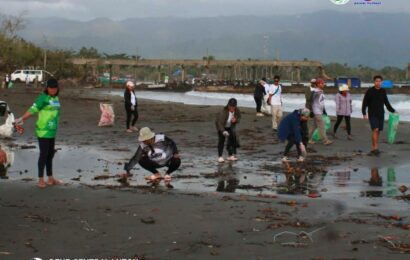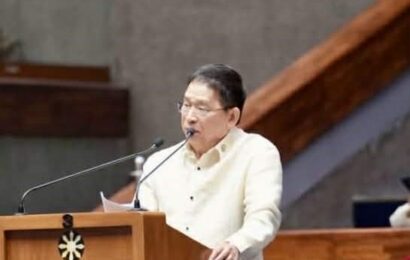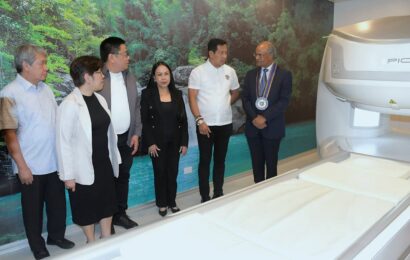Subic Bay Freeport – “This premier Freeport is set to boost the economic corridor of the country by developing both its seaport and airport,” said Subic Bay Metropolitan Authority (SBMA) Chairman and Administrator Eduardo Jose L. Aliño.

Speaking before stakeholders at the Build Better More Infrastructure Forum held at the New Clark City (NCC) in Capas, Tarlac, Aliño said that these port infrastructure projects support the Luzon Economic Corridor (LEC) Development initiative of President Ferdinand Marcos Jr.’s administration, which are expected for completion by 2028.
The official disclosed that the first project, a Multipurpose Port Terminal (MPT) at the Lower Mau, will include a 570-meter wharf, with a depth of 12.9 meters. It has a back-up area of 17.2 hectares for warehouses and open storage areas.
“This project will provide an additional capacity of 2.5 million metric tons bulk cargoes. As one of the identified projects under Public Investment Program of the National Economic Development Authority (NEDA), the project will spur economic growth through the additional berthing facility,” he said.
Another MPT that is set to be constructed at the Redondo Peninsula, will have a 600-meter wharf, with a depth of 14 meters and a breakwater. It has a back-up area of 30 hectares for warehouses, open storage, offices and support facilities. The project will increase the port capacity with additional 3 million metric tons cargoes. This is one of the identified projects under Public Investment Program of the NEDA, with a project cost of P11-billion.
“The high percentage of domestic and international commerce is by sea, therefore, the efficiency of maritime transportation has become increasingly essential to national competitiveness,” Aliño said.
The SBMA also plans to construct a Cruise Passenger Terminal area with a project cost of P1.2billion for phase 1, and P8.96billion for Phase 2. The facility will have a double berth 380meter pier with a depth of 12 meters, along with the reclamation of 20 hectares for Phase 2.
“International and local cruise operations will greatly benefit the local and national economies, with increased employment opportunities, revenue from port fees and dues, and increased tourism spending. This is vital to the National Cruise Tourism Program of the Marcos Jr. administration,” the official shared.
Also in the pipeline is the proposed improvement of existing buildings and the construction of new facilities inside the Subic Bay International Airport (SBIA) with a project cost of P7.02-billion.
To modernize ports and allied industries and to decongest passenger traffic in Metro Manila, the Marcos administration will also undertake the improvement of the SBIA to be able to accommodate 6 million passengers annually.
A new hotel and parking facilities within the airport complex that will promote the use of the SBIA and further boost the tourism sector in the Subic Bay Freeport is also in the offing. “The project is currently under study and will cost around P4.3 billion,” Aliño said.
“Locators, port users and prospective investors will also benefit from upgraded and modernized airport facilities, with increased SBIA efficiency, capacity and revenue generation. With these improvements, the SBMA will have additional revenue generating facilities with the rise of a world-class airport hotel and multilevel carpark,” he added.
“Now for the Subic Bay International Airport (SBIA) to achieve its maximum potential, we are planning to expand the SBIA by upgrading and modernizing its facilities. Once in place, we are confident to increase both the handling and revenue generating capacity of the airport,” the chairman said.
The feasibility study on the proposed SBIA Expansion Project will include the extension of the runway from 2,745 meters to 3,300 meters in length, expanded aprons, relocated CAAP-ATC tower, and a new passenger terminal building.
“This will improve and provide a more efficient client and passenger accommodation as the proposed airport is expected to generate a conservative revenue of P12.5 billion annually. This should significantly align to the objectives of the Luzon Economic Corridor,” he said.





